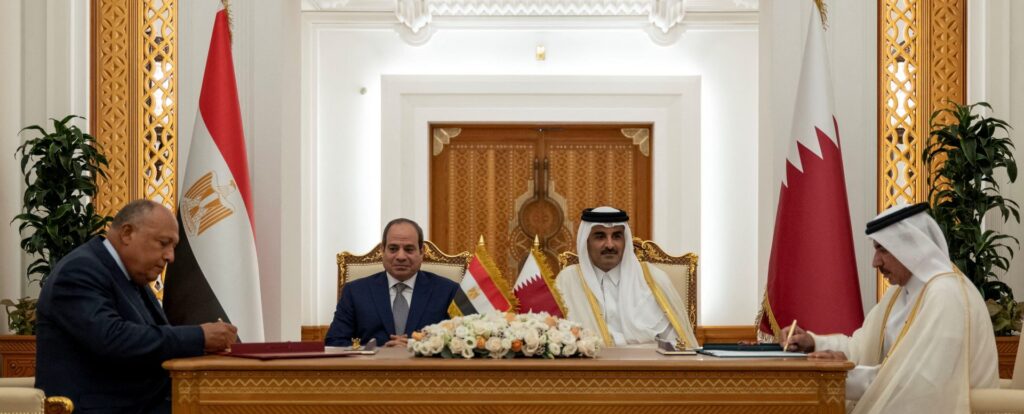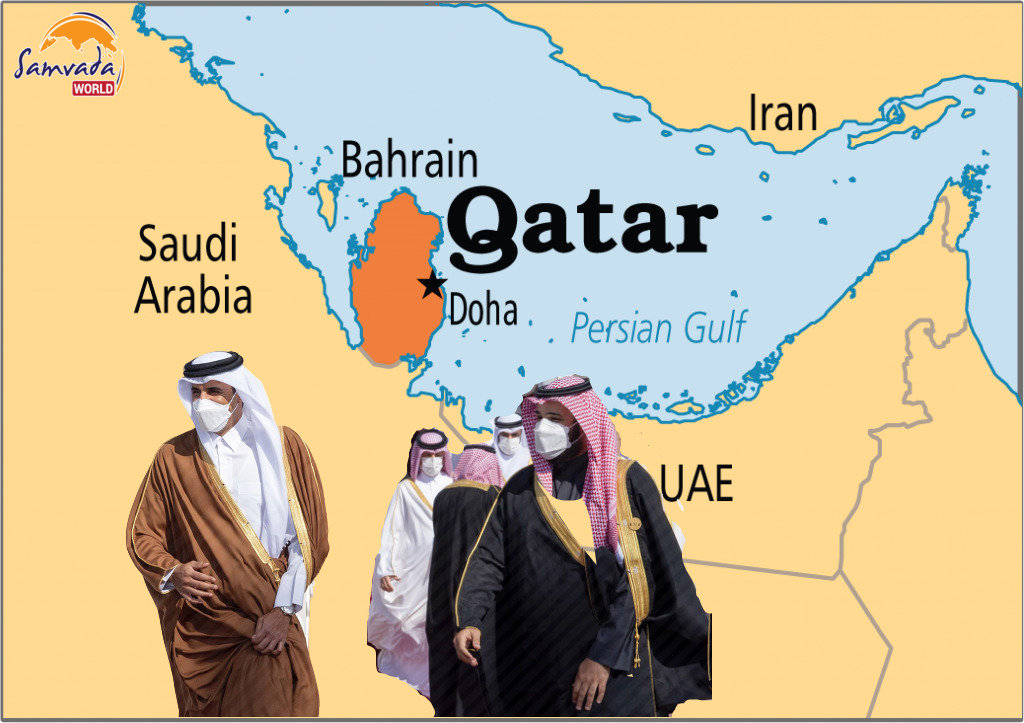Introduction
Qatar, a nation renowned for its vast energy reserves, is strategically expanding its investment footprint across Asia. This calculated move aims to diversify its economic interests and strengthen geopolitical ties within the region. As one of the world’s wealthiest nations per capita, Qatar has been channeling billions into key Asian markets, covering sectors such as technology, energy, infrastructure, and finance. However, while these investments open new economic opportunities, they also come with geopolitical challenges, including competition with global powers and navigating complex diplomatic landscapes.
Diversification Beyond Traditional Markets
Historically, Qatar’s investments have been concentrated in Europe and the United States. However, recent initiatives indicate a deliberate pivot towards Asian markets. The Qatar Investment Authority (QIA), the country’s sovereign wealth fund managing assets exceeding $500 billion, is spearheading this shift. QIA’s long-term investment strategy aligns with Qatar’s national vision to reduce dependence on oil and gas revenues, ensuring a more sustainable and diversified economy.

Asia presents an attractive opportunity for Qatar due to its rapidly growing economies, technological advancements, and increasing energy demands. Qatar’s leadership has emphasized that expanding investment in Asia is a strategic imperative, not just an economic preference. By leveraging its financial muscle, Qatar is forging stronger economic and diplomatic ties with some of the most influential nations in the region, positioning itself as a key player in global markets.
Key Investments in Asian Markets
India: A Growing Digital and Energy Partnership
QIA has significantly invested in India’s burgeoning digital economy. Notable ventures include funding rounds for food delivery platforms, education technology firms, and fintech companies. Additionally, Qatar has shown a keen interest in India’s renewable energy sector, particularly through investments in major energy companies focused on green initiatives.
India’s growing population and digital transformation make it an appealing market for Qatar. The country’s retail sector has also attracted QIA’s attention, with significant stakes in major Indian conglomerates aiming to expand their footprint in e-commerce and traditional retail operations. This partnership not only brings economic benefits but also strengthens bilateral relations between the two countries, enhancing trade and diplomatic cooperation.
China: Tapping into Technology and Green Energy
In China, QIA has acquired stakes in some of the biggest technology companies, aligning with its strategy to tap into high-growth markets and technological advancements. Investments in artificial intelligence, digital finance, and cloud computing indicate Qatar’s long-term vision to integrate itself into China’s tech revolution.
Additionally, China’s commitment to green energy and electric vehicles has presented Qatar with opportunities to invest in battery technology and energy storage solutions. As the world transitions to cleaner energy, Qatar’s involvement in China’s sustainable initiatives ensures its relevance beyond fossil fuels. These investments also support Qatar’s growing role in China’s Belt and Road Initiative, further deepening economic ties between the two nations.
Southeast Asia: Expanding Across Multiple Sectors
QIA is enhancing its presence in Southeast Asia through substantial investments in technology startups, tourism, and real estate. In Malaysia, Qatar has invested millions in automotive e-commerce, while in Indonesia, it has committed large sums to tourism projects aimed at developing new destinations.
The region’s economic growth, young workforce, and increasing consumer spending make it a strategic market for Qatar. Infrastructure development, particularly in transportation and urban planning, has also been a focus area, with Qatar investing in projects that align with its expertise in construction and real estate.
Strategic Objectives Behind the Investments
Qatar’s investment strategy in Asia serves multiple purposes:
Economic Diversification

By channeling funds into diverse sectors across various Asian economies, Qatar seeks to reduce its reliance on hydrocarbon revenues and build a more resilient economic foundation. The global push towards sustainability has made it crucial for Qatar to invest in industries beyond oil and gas, ensuring long-term economic stability.
Energy Market Expansion
Asia represents a critical market for Qatar’s liquefied natural gas (LNG) exports. The nation is investing heavily in expanding its LNG capacity, with plans to nearly double production within the next decade. As demand for LNG grows in China, India, and Southeast Asia, Qatar is positioning itself as the region’s top supplier, securing long-term contracts with major buyers.
Additionally, Qatar is investing in Asian refineries and energy infrastructure, ensuring that its presence in the region extends beyond raw material exports. This strategy strengthens Qatar’s energy dominance while helping Asian nations transition to cleaner energy sources.
Geopolitical Influence
Through strategic investments, Qatar aims to strengthen diplomatic relationships and enhance its geopolitical standing in Asia. Engaging with Central Asia, including partnerships in agriculture, infrastructure, and energy, offers Qatar a link to China’s Belt and Road Initiative and fosters collaborations with major regional powers.
By increasing economic interdependence with Asian nations, Qatar is also reducing its vulnerability to economic sanctions or political isolation. The Gulf state’s investments act as a soft power tool, fostering goodwill and diplomatic leverage in global affairs.
Challenges and Considerations
Despite its ambitious investment agenda, Qatar faces several challenges:
Market Competition
Qatar’s LNG sales to key Asian markets are encountering increased competition from the U.S., UAE, and Oman, who offer more flexible contract terms. This competition has led to intense negotiations and a shifting market landscape, requiring Qatar to adjust its pricing and long-term contracts to maintain dominance.
Additionally, in the tech and infrastructure sectors, Qatar competes with other sovereign wealth funds and private equity firms from across the globe. Ensuring that its investments yield strong returns while securing strategic advantages remains a delicate balancing act.
Geopolitical Tensions
As Qatar deepens its economic ties with Asian nations, it must navigate complex geopolitical dynamics, including the strategic rivalry between the U.S. and China. While Qatar benefits from Chinese partnerships, it also maintains strong ties with Western nations. Balancing these relationships without alienating key allies is a diplomatic challenge.
Moreover, regional instability in parts of Asia poses risks to investments. Political unrest, economic slowdowns, or regulatory changes in key markets could impact Qatar’s financial commitments, requiring careful risk assessment and adaptive strategies.
Investment Risks
Venturing into new markets entails exposure to different regulatory environments, economic volatilities, and cultural nuances. Each country in Asia has unique business practices, legal frameworks, and political landscapes that Qatar must navigate effectively. Ensuring compliance with local regulations and adapting to market-specific challenges is crucial for the success of Qatar’s investment strategy.
Conclusion
Qatar’s growing investments in Asia reflect a strategic endeavor to diversify its economy, expand its energy market reach, and enhance its geopolitical influence. While opportunities abound, the path is fraught with challenges that require astute navigation. The Gulf nation’s ability to balance economic ambitions with geopolitical realities will determine the long-term success of its Asian investment strategy.
As Qatar continues to forge partnerships and invest across the continent, its role as a major economic player in Asia will likely grow. Whether through LNG exports, tech investments, or infrastructure development, Qatar’s financial influence in the region is becoming more pronounced. The coming years will be crucial in shaping Qatar’s place in the Asian economic landscape, with implications not only for its economy but also for global trade and diplomacy.



